Fasera is a leader in carbon sequestration through its managed estates of Australian Oil Mallee and other Eucalyptus trees, producing a range of products with a sustainable production cycle to generate increasing yields, enhance ecosystems, and lock carbon in soils for millennia. Our products provide diverse benefits, such as carbon offsets/credits and agricultural, pharmaceutical, industrial and other applications.
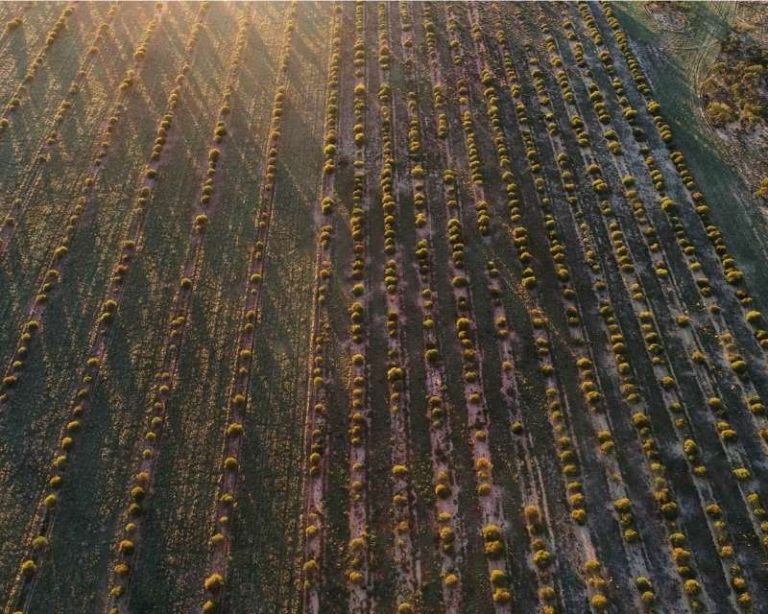
Carbon Credits
Australian Carbon Credit Units (ACCUs) represent the avoidance or removal of 1 tonne of CO2 equivalent. They are a financial instrument, awarded to eligible carbon projects. We’re developing accreditation to also generate CO2 Reduction Certificates (CORCs) from our Biochar.
Find out more
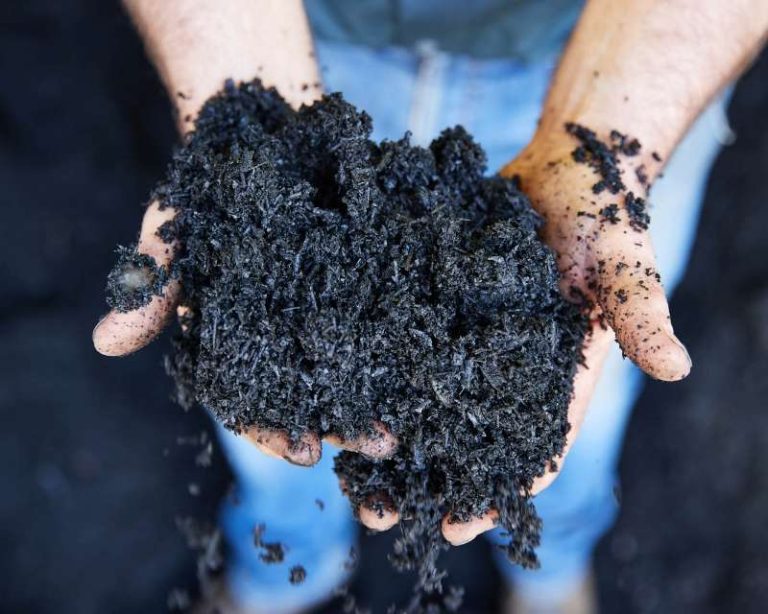
BioChar
A highly adsorbent carbon substance produced by the pyrolysis of our mallee tree biomass. The biomass used is the trunk and branches as well as that left over from steam distillation to produce our eucalyptus oil.
Find out more
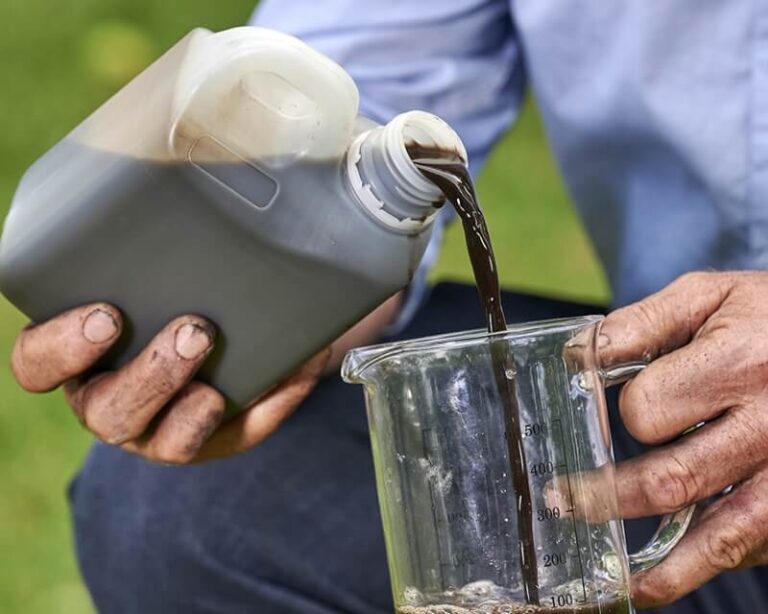
Wood Vinegar
A dark brown liquid produced by the destructive distillation of wood, smoke and other organic materials through pyrolysis. Possesses many agricultural and environmental applications.
Find out more

Eucalyptus Oil
Green oil mallee biomass is processed by traditional steam methods for oil extraction to produce higher oil yields with less impurities compared to hydro-distillation or solvent extraction.
Find out more
Our Solutions

Carbon Credits
A carbon credit is a certificate which independently verifies carbon capture and sequestration and can be used as an offset by a company emitting CO2 or equivalent greenhouse gases. Globally, governments are imposing requirements to reduce CO2 and greenhouse gas emissions and companies are using carbon credits to help offset emissions they can’t reduce.
Fasera’s product offerings include Australian Carbon Credit Units (ACCUs) and CO2 Reduction Certificates (CORCs).
- CORCs are certificates that independently verify carbon sequestration and which can be used by companies to offset to their CO2 emissions, or the equivalent of greenhouse gas emissions;
- ACCUs are a financial instrument that represents the avoidance or removal of one tonne of CO2 equivalent from the atmosphere through either emissions reduction or carbon sequestration.
Our Process
Fasera produce the highest quality carbon credits through two verified processes:
- We have produced and sold Australian Carbon Credit Units (ACCUs) since 2010. Carbon is captured and sequestered through our registered projects - estates of native tree plantations in Environmental Plantings. Fasera receives ACCU credits from the Australian Clean Energy Regulator which are subject to regular audit and assurance verification. Carbon credits are determined through regular offset reports which provide extensive project data. Our ACCUs are highly sought after due to the high standards of quality, assurance transparency and carbon sequestration verification. In addition, our process also provides other benefits including landscape regeneration and natural ecosystem/environmental renewal.
- Each tonne of biochar produced by Fasera results in the capture of 3.7 mt gross of CO2 from the atmosphere. By converting spent biomass from eucalyptus oil distillation to biochar, we convert what was atmospheric carbon in biomass into ‘recalcitrant’ carbon in biochar - which resists decomposition and remains stable in soil for generations. Each tonne of biochar produced generates gross credits of 3.7 Mt of CO2 credits. Net credits are determined by reconciling our own production process emissions and the level of organic carbon content in our biochar with gross credits under a methodology developed and administered by NASDAQ-owned PURO Earth https://puro.earth/.
The generation of audited, assured and verified carbon credits for use by greenhouse gas emitters represents just one element of the integrated portfolio of products we’ve developed.
How to purchase
At Fasera we grow, harvest and process biomass from oil mallee tree plantations. The growth of our oil mallee plantations is effective in capturing atmospheric carbon, through photosynthesis, in plant biomass, including in the mallee roots. The harvest and pyrolysis of biomass produces a range of products including biochar. The capture and sequestration of carbon through these processes generates ACCUs and CORCs which can be purchased as a carbon offset. If you are interested in the generation or the acquisition/purchase of carbon offsets in any capacity, please contact us via our enquiry form.
Get in touch with us to purchase your Carbon Credits today.
Our Solutions

BioChar
Biochar is a charcoal-like, highly adsorbent, carbon substance that is produced by pyrolysing organic material (plant biomass) in an inert low oxygen environment.
Biochar’s Structure
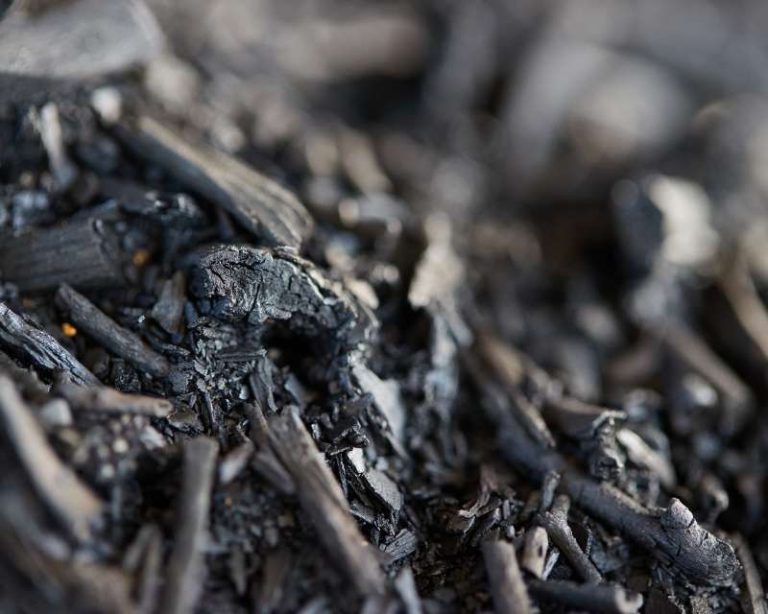
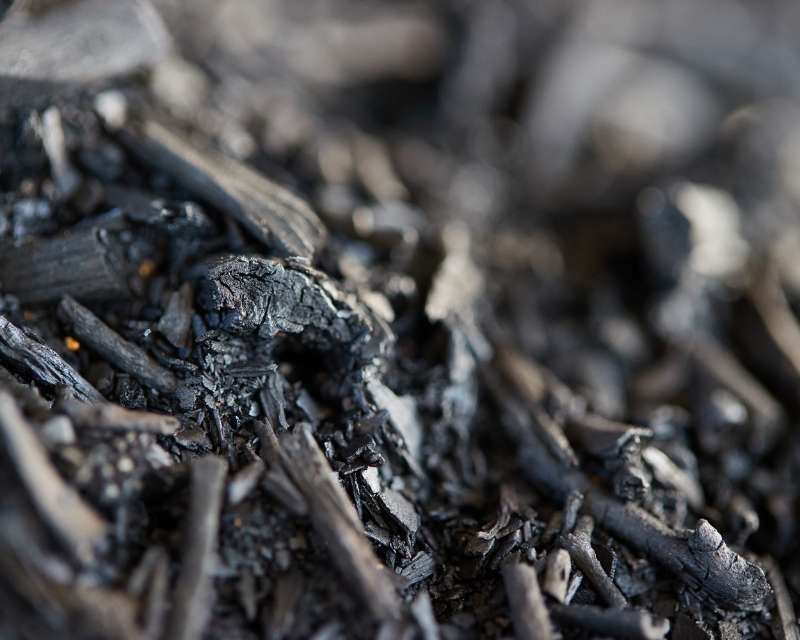
Biochar resists decomposition and can have a very long (thousands of years) soil residence time. A stable (recalcitrant) form of organic carbon compared to unprocessed biomass, it has a naturally porous structure and significantly improves soil health.
Its many uses
High-quality biochar can be sold into many end-markets, including regenerative agriculture, soil remediation, livestock feed supplements, air purification, water filtration and odour control systems. Biochar also has other diverse applications including the replacement of chemical fertilisers in agriculture and industrial additive solutions in asphalt and concrete. The global biochar market has developed rapidly, with the European Union market alone growing by 500% over a five year period.
Biochar can be used in applications ranging from domestic through to large commercial/agricultural scale settings. It can be incorporated in soils, gardens, potting mixes or fertilisers, with benefits being achieved regardless of the size of the project.
Once incorporated in the soil, biochar continues to provide carbon sequestration benefits and improve soil structure and soil health for generations due to its stability, very long residence time in soils and its naturally porous structure. Biochar improves soil aeration, water-holding capacity, nutrient retention and also acts as a refuge for beneficial soil microbiology.
It has been used since ancient times to improve soil health and productivity as evidenced by char pits found at sites surrounding Aztec cities in South America, the origin of the term “terra preta”. More recently, many published scientific papers document the benefits of biochar in redeveloping soil health in degenerated landscapes. As well as replacing organic carbon in depleted soils, biochar increases water and fertiliser retention, microbial activity and the development of soil ecosystems and soil fauna such as earthworms and insects.
Once incorporated in the soil, biochar continues to provide carbon sequestration benefits and improve soil structure and soil health for generations due to its stability, very long residence time in soils and its naturally porous structure. Biochar improves soil aeration, water-holding capacity, nutrient retention and also acts as a refuge for beneficial soil microbiology.
It has been used since ancient times to improve soil health and productivity as evidenced by char pits found at sites surrounding Aztec cities in South America, the origin of the term “terra preta”. More recently, many published scientific papers document the benefits of biochar in redeveloping soil health in degenerated landscapes. As well as replacing organic carbon in depleted soils, biochar increases water and fertiliser retention, microbial activity and the development of soil ecosystems and soil fauna such as earthworms and insects.
The International Panel on Climate Change rates biochar application as having high global mitigation potential. An analysis of multiple studies on biochar applications in plant production found an average increase in food crop yields of about 15% in biochar amended soils in sandy and tropical soil environments, where soils are hydrophobic/depleted of their original carbon content, or nutrients are more easily leached from the soil profile.
Biochar has also been used as an additive in livestock feed where it has been shown to increase productivity (weight gain and animal health) and reduce enteric methane emissions. Additional carbon capture benefits are also achieved through livestock waste. Manure from livestock production leads to organic carbon being incorporated in soils by composting feedlot waste and by the natural distribution of livestock manure over the landscape.
Biochar has been proven to accelerate and enhance compost development whilst also reducing methane emissions from the composting process. In livestock feed, small quantities of biochar (0.6% - 1.0% w/w of dry-matter) can be added to feedlot rations, applied in pelletised formulas or provided directly to livestock.
Biochar has been proven to accelerate and enhance compost development whilst also reducing methane emissions from the composting process. In livestock feed, small quantities of biochar (0.6% - 1.0% w/w of dry-matter) can be added to feedlot rations, applied in pelletised formulas or provided directly to livestock.
How it’s made
Fasera produces biochar from the sustainable harvest and coppicing of mallee tree plantations in a sustainable harvest cycle.
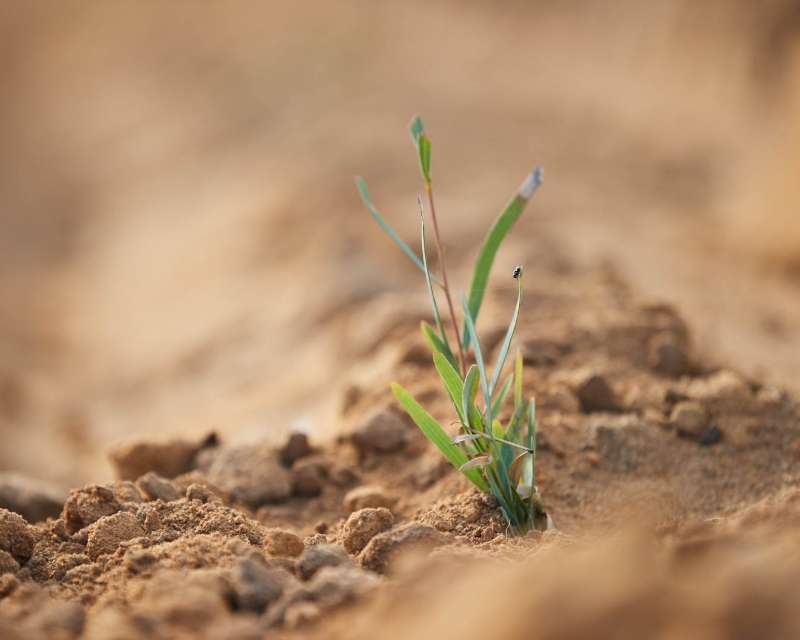
Fasera produces biochar from the sustainable harvest and coppicing of mallee tree plantations in a sustainable harvest cycle.
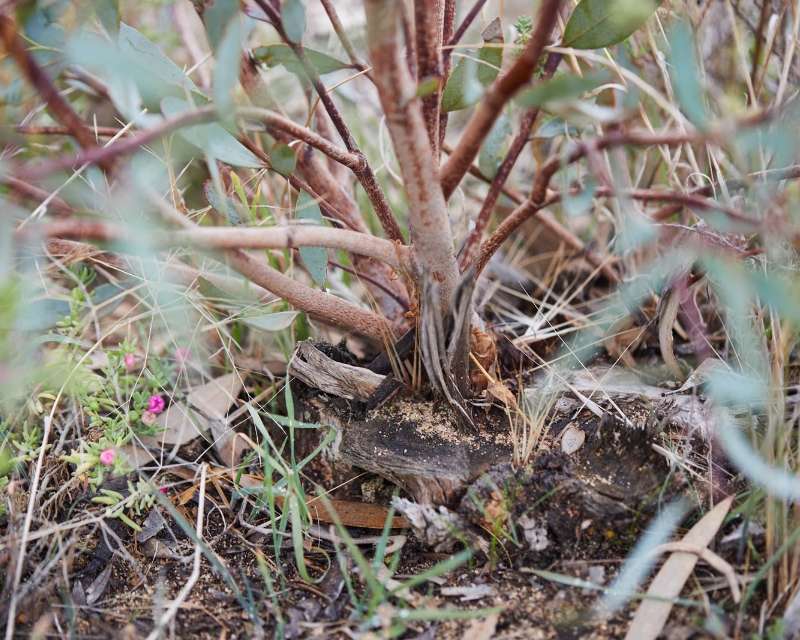
Significant regrowth (coppice) of biomass occurs from ligno-tubers in the ground, increasing future harvest yield. Harvested green biomass is chipped and steam distilled to produce eucalyptus oil.
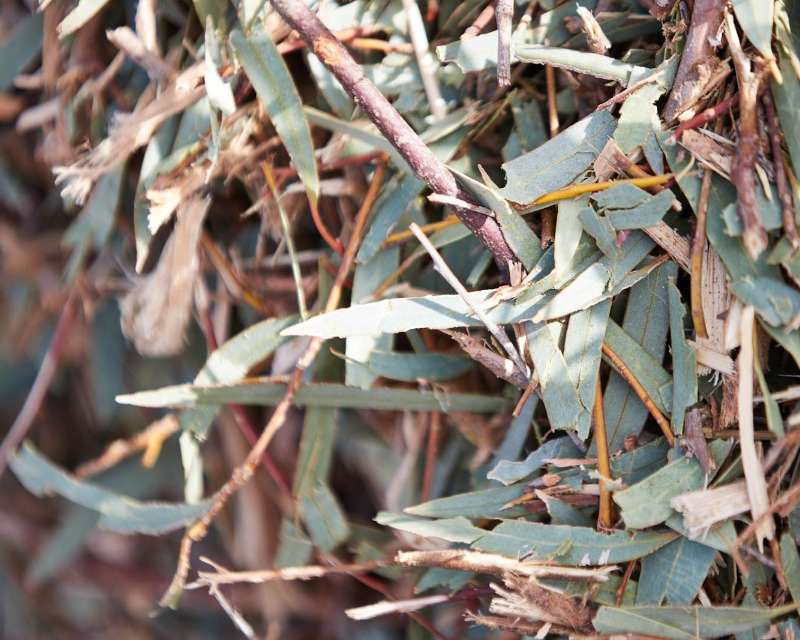
Harvested green biomass is chipped and steam distilled to produce eucalyptus oil
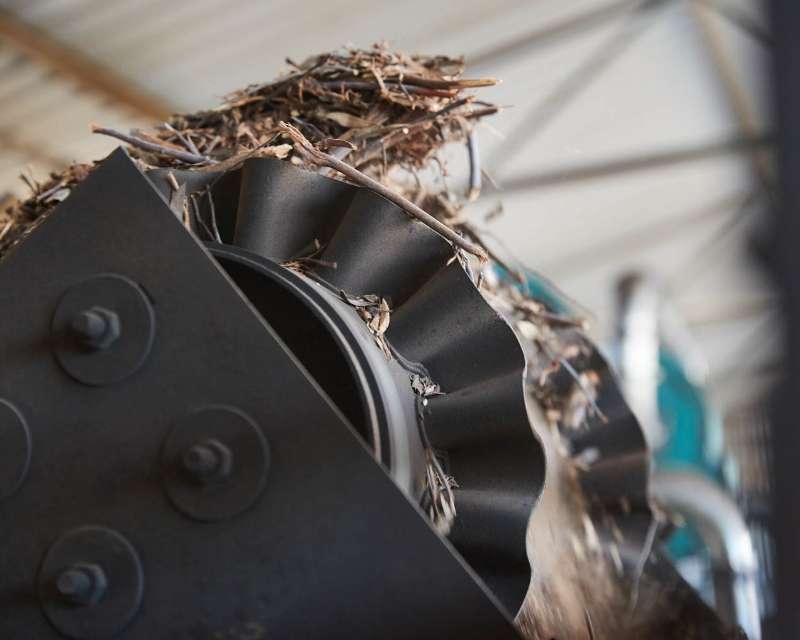
The woody biomass waste and the biomass resulting from the steam-distillation/oil production process is transported to the pyrolysis plant, where it is fed into the combustion chamber at a controlled rate.

The biomass is burnt (charred) in a continuous oven in an inert and relatively anaerobic (oxygen-free) environment.
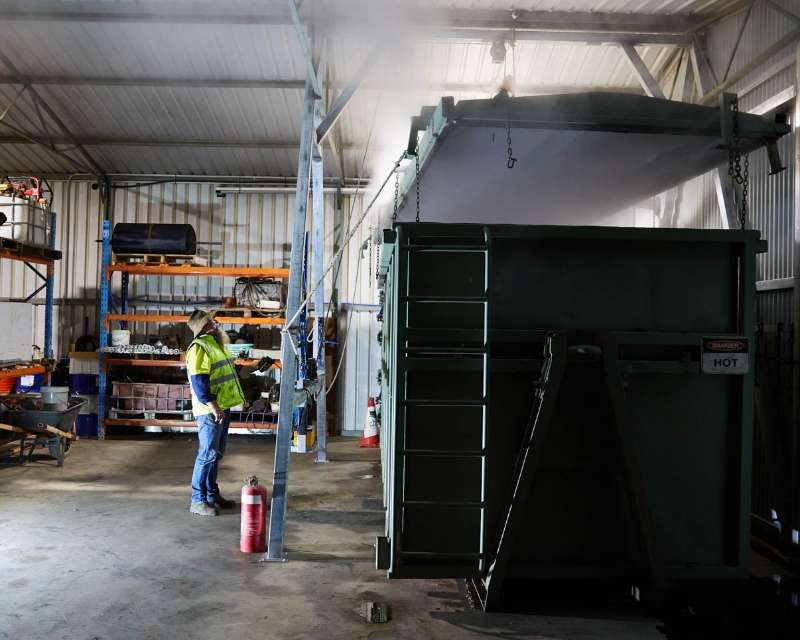
We have developed innovations for our pyrolysis process, including a unique water jacket surround for the thermal oxidiser. Exhaust gases are burnt off and heated water from the water jacket is directed to our oil distillation boiler inlet.
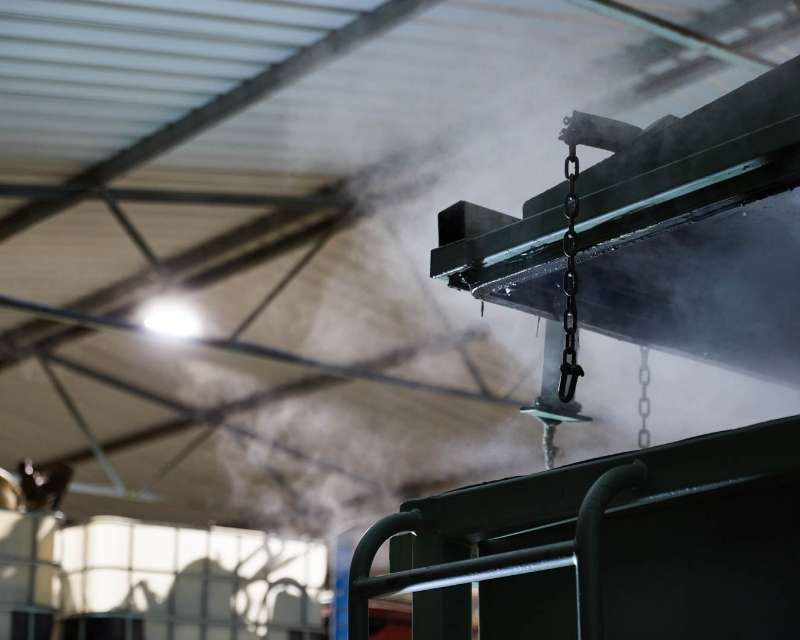
This provides significant (>50%) energy efficiency benefits in the production of steam for distillation to produce eucalyptus oil.
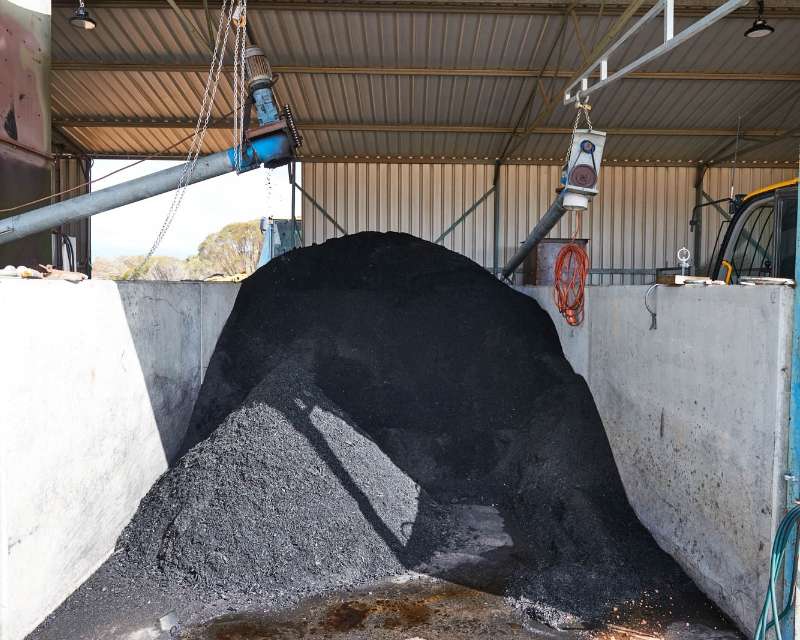
The charred biomass is augered to a quenching pit where it is showered with water which is absorbed, so that embers are quenched and temperature is reduced to mitigate fire risk and to eliminate dust.
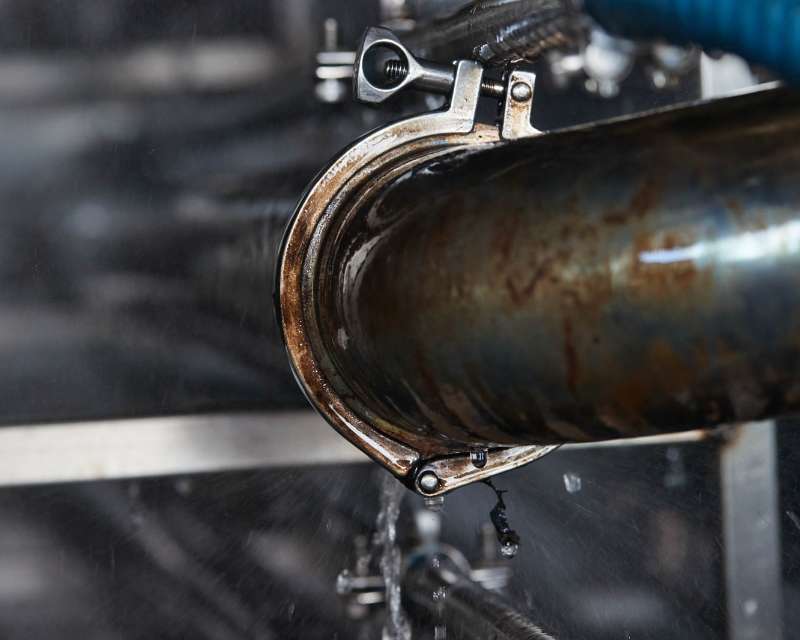
Smoke is drawn from the combustion chamber and condensed through a process created by Fasera to produce Wood Vinegar, creating an additional value-added product and reducing pyrolysis emissions.
The production of biochar from the pyrolysis of spent biomass represents just one element of the integrated portfolio of products we’ve developed.
Is Biochar for you?
Biochar has many potential benefits and applications across multiple industries - whether you are a home gardener, a hobby farmer or a large-scale agricultural or other enterprise, it is likely that biochar can help you achieve better results in a sustainable and environmentally friendly way, whilst reducing atmospheric carbon over the long term. Find out how biochar can improve your soil, reduce livestock methane gas emissions or aid in global climate mitigation.
References
- Stephen Joseph a, Doug Pow b, Kathy Dawson c, Joshua Rust d, Paul Munroe a, Sarasadat Taherymoosavi a, David R.G. Mitchell e, Samuel Robb f, Zakaria M. Solaiman g: Biochar Increases Soil Organic Carbon, Avocado Yields and Economic Return Over 4 Years Of Cultivation
- Stephen Joseph, Doug Pow, Kathy Dawson, David R. G. Mitchell, Aditya Rawal, James Hook, Sarasadat TAHERYMOOSAVI, Lukas VAN ZWIETEN, Joshua RUST, Scott DONNE, Paul MUNROE, Ben PACE, Ellen GRABER, Torsten THOMAS, Shaun NIELSEN, Jun YE, Yun LIN, PAN Genxing, LI Lianqing And Zakaria M. SOLAIMAN: Feeding Biochar To Cows: An Innovative Solution For Improving Soil Fertility And Farm Productivity
- Simone Madden-Grey: Biochar in the vineyard: building a foundation for sustainability
- Hans-Peter Schmidt: Biochar – the key technology to close the carbon and nutrients cycle
- Tommy M. Winders, Collin B. Freema, Brittney A. Mark Mark, Melissa L. Jolly-Breithaupt, Hannah C. Hamilton: Biochar Supplementation in Growing and Finishing Diets
- Kathleen Draper and Shannan Sweet: The Potential for Biochar to Enhance Sustainability in the Dairy Industry
Get in touch with us to purchase your Biochar today.
Our Solutions

Wood Vinegar
Wood Vinegar, or pyroligneous acid - sometimes known as condensate - is a dark liquid produced from the smoke and emissions generated by the pyrolysis (burning/charring) of oil mallee biomass. Smoke and emissions are drawn from the pyrolysis plant combustion chamber and channelled through a series of pipes and cooling chambers where they are condensed to generate this amazing natural product.
Wood Vinegar’s Structure
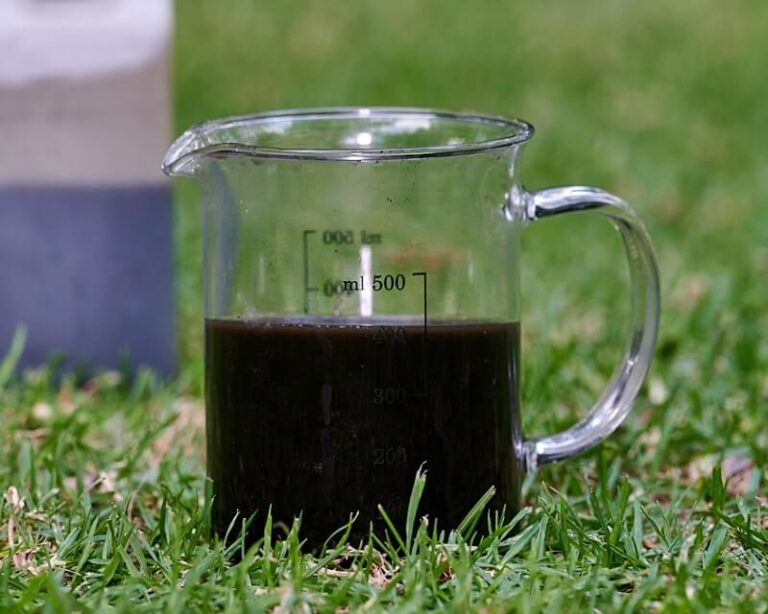
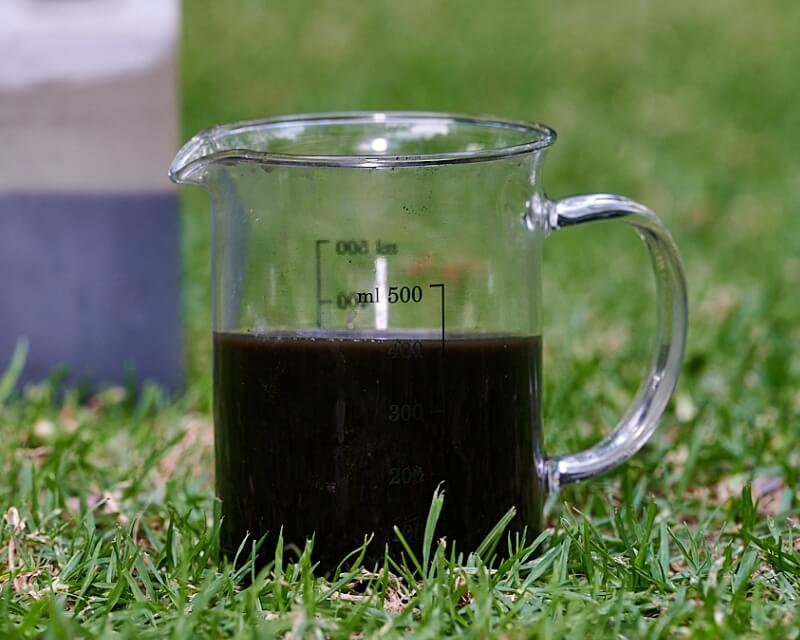
Pyroligneous acid is a crude, condensed and highly oxygenated organic liquid which is a by-product of biomass pyrolysis. It mainly comprises aliphatic, aromatic, and naphthenic hydrocarbons with other oxygenated compounds such as alcohols, aldehydes, ketones, furans, acids, phenols and ethers.
Its uses
Fasera will produce about 900 tonnes of wood vinegar annually. Wood vinegar contains ~200 organic compounds and together with biochar, sales of wood vinegar are becoming a significant revenue driver for the business.
Pyroligneous acid exhibits anti-oxidant and chemical scavenging properties and has been used in agriculture for a wide range of applications. An all natural product, wood vinegar can be used as a soil bio-stimulant at low rates of application. With its high content of organic compounds, it can be used to improve soils and promote seed germination and plant growth. Natural Wood Vinegar provides significant environmental benefits when replacing traditional chemicals.
The organic compounds found in wood vinegar can also be used as an effective anti-microbial agent or as an insecticide. When diluted, it is a natural bio-herbicide and is effective in reducing or eliminating the growth of weeds/unwanted plants. When diluted, it is also an effective bio-pesticide. Wood vinegar is a potentially high-value market replacement for chemical pesticides and herbicides, although further market development and research is required. It is potentially a very lucrative market, with equally significant potential environmental and economic benefits.
How it’s made
The spent (used) biomass after steam distillation to produce eucalyptus oil and the woody biomass from mature trees is fed into the pyrolysis plant to produce biochar.

The spent (used) biomass after steam distillation to produce eucalyptus oil and the woody biomass from mature trees is fed into the pyrolysis plant to produce biochar.

Smoke and other emissions from the pyrolysis of our biomass are extracted from the combustion chmaber and condensed to produce wood vinegar.
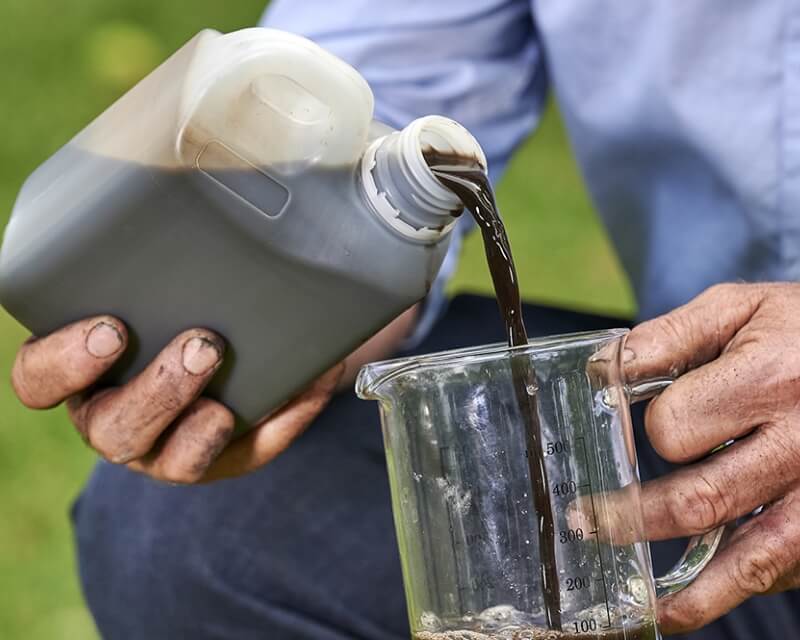
Wood vinegar can be generated at a rate of 2L/minute per char machine depending on the source biomass. Fasera is planning on commissioning two additional char machines to have three operational by 2027.
The production of wood vinegar from the condensation of smoke and organic compounds that otherwise would be emitted represents just one element of the integrated portfolio of products we’ve developed whilst actively improving environmental outcomes.
How to purchase
At Fasera we grow, harvest and process biomass from oil mallee tree plantations. The pyrolysis of biomass produces a range of products including wood vinegar. Wood vinegar and our wider product range is available for either wholesale purchase by businesses or retailers, or retail purchase by individual customers. To learn more and place your wood vinegar order, please contact us via our enquiry form.
References
- Kunmiao Zhu, Sicheng Gu, Jiahuan liu, Tao Luo, Zaid Khan, Kangkang Zhang, and Liyoing Hu: China Canola Review = Wood Vinegar as a Complex Growth Regulator Promotes the Growth, Yield and Quality of Rapeseed.
- Xiang Guo, Peng Zheng, Xuan Zou, Xiaoyang Chen and Qing Zhang: Pyroligneous Acid – Silage = Influence of Pyroligneous Acid on Fermentation Parameters, CO2 Production and Bacterial Communities of Rice Straw and Stylo Silage.
- Khoran Nisa Mahmud, Maizatulakmal Yahayu, Siti Hajar Md Sarip, Nurul Husna Rizan, Chai Bing Min, Nurul Farhana Mustafa, Sulaiman Ngadiran, Salmiah Ujang and Zainul Akmar Zakaria: Evaluation on Efficiency of Pyroligneous Acid = Evaluation on Efficiency of Pyroligneous Acid from Palm Kernel Shell as Antifungal and Solid Pineapple Biomass as Antibacterial and Plant Growth Promoter.
- Yuying Wang, Ling Qiu, Qilu Song, Shuping Wang, Yajun ang and Yihiong Ge: Root Proteomics Wheat = Wheat Proteomics Reveals the Effects of Wood Vinegar on Wheat Growth and Subsequent Tolerance to Drought Stress.
- Keiji Jindo, Travis Luc Goron, Soboda Kurebito, Kazuhiro Matsumoto, Tsugiykui Masunaga, Kouki Mori, Kazuhiro Miyakawa, Seiya Nagao and Takeo Tokunari: Sustainable Plant Growth Promotion = Sustainable Plant Growth Promotion and Chemical Composition of Pyroligneous Acid When Applied with Biochar as a Soil Amendment.
Get in touch with us to purchase your order of Wood Vinegar today.
Our Solutions

Eucalyptus Oil
Fasera produces high quality eucalyptus oil with low levels of impurity from endemic oil mallees planted either on company-owned estates, or on land owned by local farmers in the Western Australian wheatbelt region.
Oil mallees are harvested sustainably and coppiced. Coppicing generates regrowth, additional biomass and improved carbon capture, as well as increased oil production.
How it started
Our oil mallee trees are farm grown as part of a process to rehabilitate and regenerate farmlands that have become degraded after clearing and used for broadacre agricultural activities. The historical clearing of native flora to make way for annual winter cropping programs has resulted in elevated water table levels and significantly increased soil and groundwater salinity. Millions of oil mallee trees (specifically Eucalyptus kochii and Eucalyptus loxophleba lissophloia - species locally endemic to this region of Western Australia) have been planted over tens of thousands of hectares to reduce the saline water table and soil/water salinity levels and to improve the quality, structure and health of soils. Oil mallee plantations have improved plant and animal ecosystems, provide protection from wind erosion and provide shelterbelts for livestock as well as for native fauna, birdlife and insects.
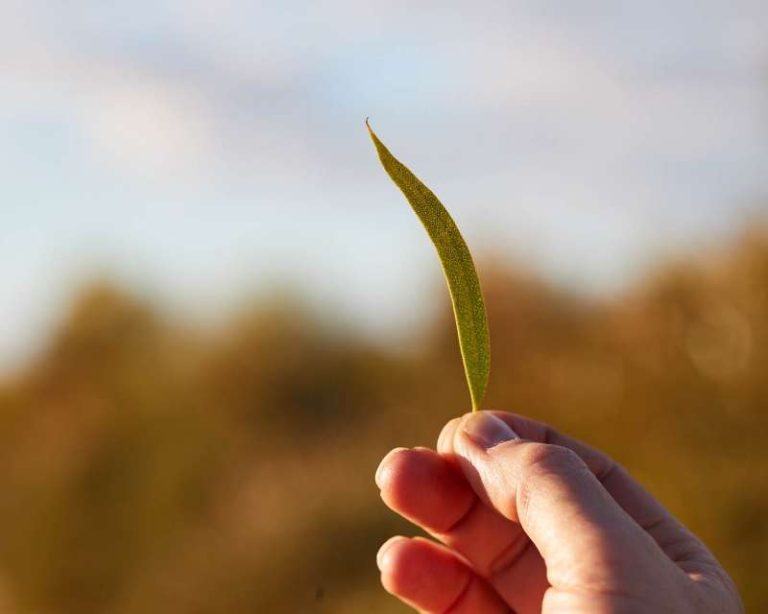
Why Mallee?
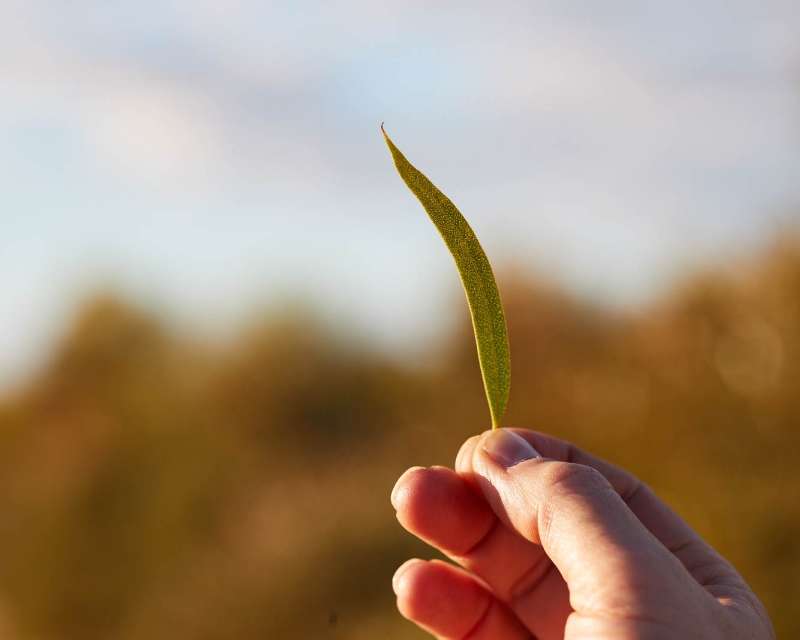
We have selected locally endemic species of oil mallee for planting which are adapted for healthy growth at our plantation locations. They are perfectly suited to, and contribute to the development and enhancement of, a healthy local ecosystem. Our oil mallees flourish in this setting and provide sustainable benefits including increased levels of carbon capture over time and increased production of oil and our other product offerings of biochar and wood vinegar.
Our oil types
We produce oil from three species of farm-grown oil mallee which we have planted:
- Eucalyptus kochii (E. kochii has the highest levels of naturally occurring eucalyptol/cineole content amongst all 900+ species of eucalypts occurring worldwide, at 90-95%)
- Eucalyptus loxophleba lissophloia (also known as lox liss or York Gum or Yandee)
- Eucalyptus polybractea (Blue Mallee)
The Global Demand
The global market for eucalyptus oil is estimated at around 20,000 mt pa with demand increasing for traceable, sustainable, high cineole oils such as those produced by Fasera.
The demand for Australian eucalyptus oil continues to increase worldwide. This can be attributed to the traceability, authenticity, sustainability and quality of Australian oil production. At Fasera, we produce a high quality, low impurity and high cineole content raw crude essential oil.
The demand for Australian eucalyptus oil continues to increase worldwide. This can be attributed to the traceability, authenticity, sustainability and quality of Australian oil production. At Fasera, we produce a high quality, low impurity and high cineole content raw crude essential oil.
Its many uses
In 2020, the pharmaceutical and fragrance sectors jointly comprised the largest share by value of the global eucalyptus oil market. Market analysis and industry forecast data suggest the pharmaceutical and fragrance sectors will continue to dominate the eucalyptus oil market in coming years. Consumers are increasingly recognising the health benefits of using natural cosmetics; many cosmetics companies are therefore increasing the use of more natural ingredients and reducing the use of man-made chemicals in their products. This trend, with the traceability and recognised provenance of our oil production, are expected to contribute to our increasing share of the high value eucalyptus oil market.
Eucalyptus oil has been used as a base flavouring in food and drinks for centuries. It has particular appeal due to its antiseptic and respiratory stimulus properties and is an active ingredient in many over-the-counter lozenges, toothpastes and mouth rinses. At low levels it is also used in baked goods, confectionery, meat products and drinks.
Eucalyptus oil is a powerful natural solvent and is a component of many manufactured household and industrial detergents and cleaning products. It is particularly gentle on natural fabrics such as wool and is commonly used in its raw form to remove grease and sticky residues.
How it’s made
Fasera identifies suitable land and plants oil mallee seedlings, establishing an estate of mallees that will grow to be harvest ready at about 5 years of age
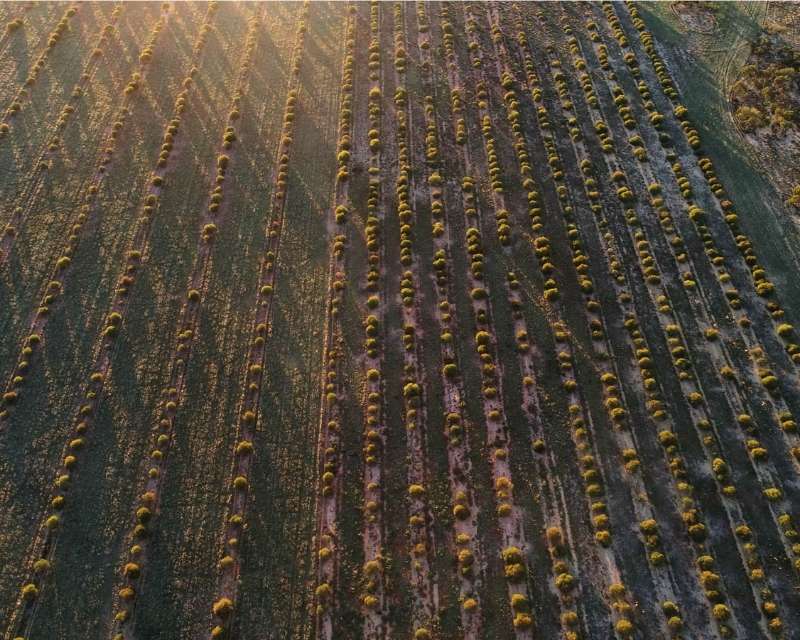
Fasera identifies suitable land and plants oil mallee seedlings, establishing an estate of mallees that will grow to be harvest ready at about 5 years of age

The green biomass of our mallee trees or coppice is harvested and the biomass is chipped and transported to our still, located on our Canterbury Farm at Kulja, in the West Australian wheatbelt.
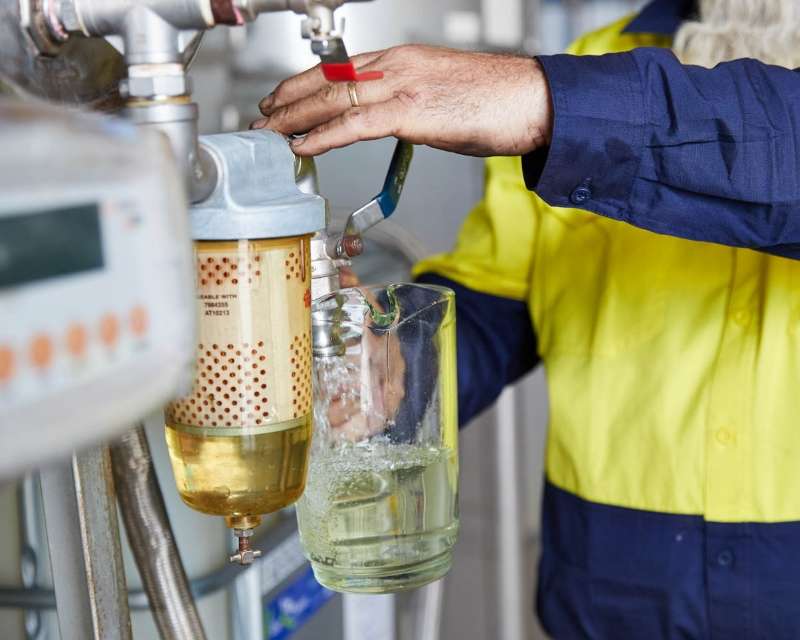
The leafy biomass is steam distilled to produce a 100% natural, sustainable and traceable crude oil.
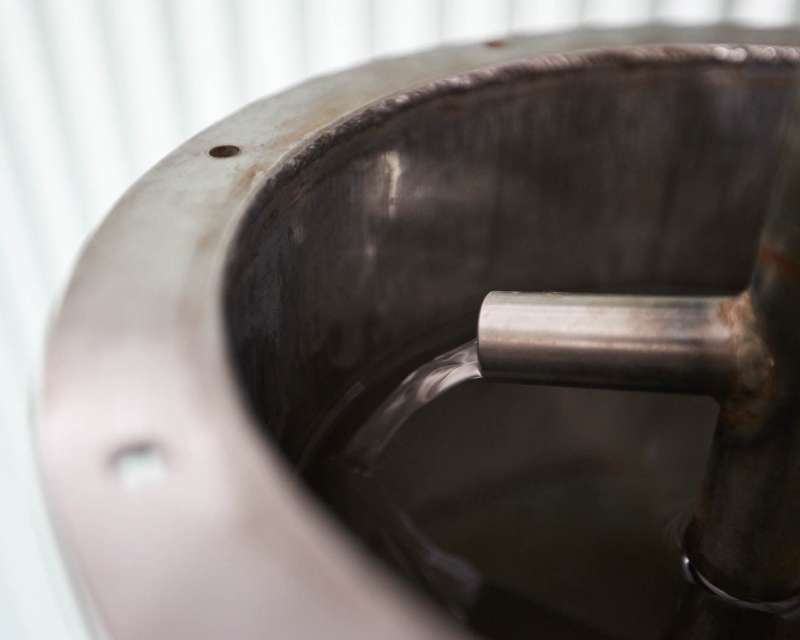
Our oil is packed and stored with each drum being referenced to production batches from which it was distilled and the production batches referenced back to the property and paddock from which the biomass was sourced.
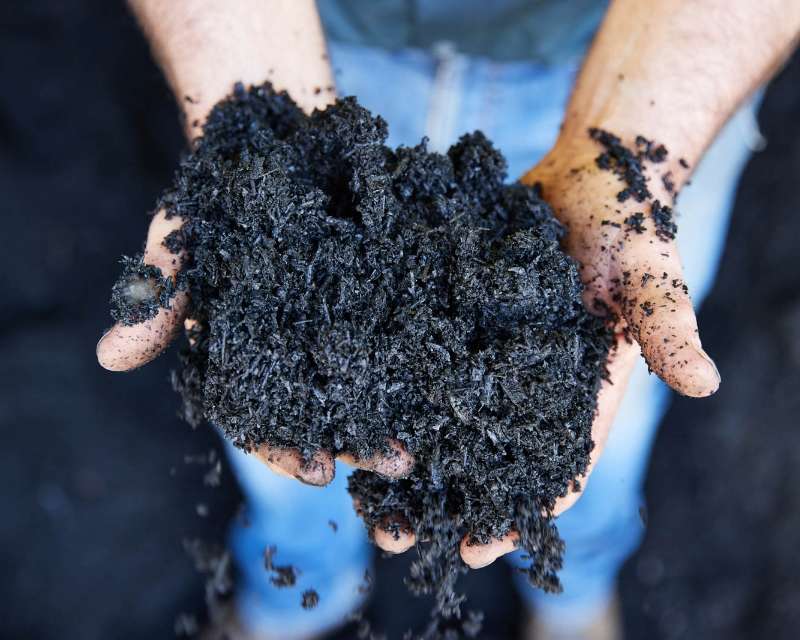
Once distilled, the cooked biomass is left to dry and then pyrolysed to produce biochar and wood vinegar in our continuous pyrolysis oven. Our stil and pyrolysis plants are co-located to streamline production, increase efficiency and reduce costs.
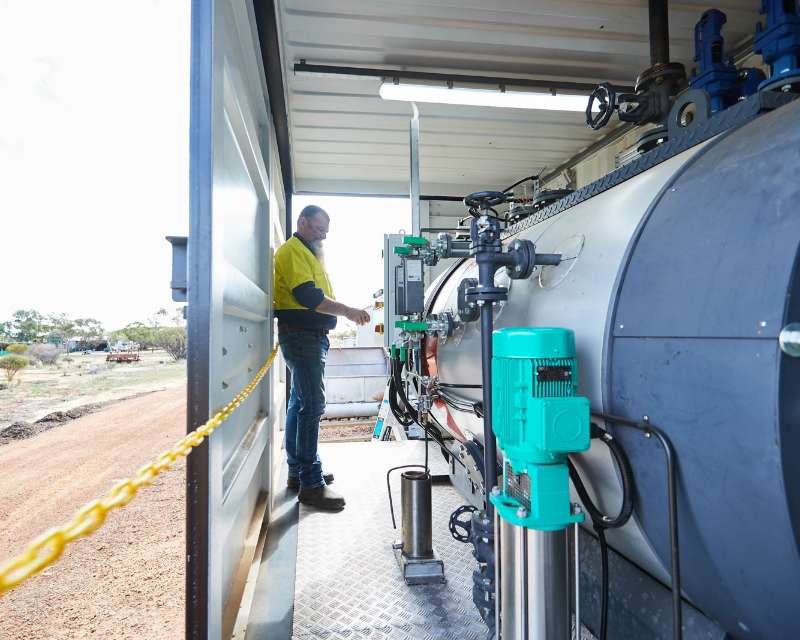
Our distillery is mobile, enabling its relocation to harvest activities at our Newland Estate in North Bodallin and ensuring the on-site distillation of organic eucalyptus oil to produce the very highest integrity and finest quality organic oil.
The production of eucalyptus oil from the steam distillation represents just one element of the integrated portfolio of products we’ve developed.
Purchase Eucalyptus Oil
At Fasera we grow, harvest and process biomass from oil mallee tree plantations to produce the world’s finest quality 100% natural Australian eucalyptus oil. Our product range in Western Australia is available for either wholesale purchase by businesses or retailers, or retail purchase by individual customers. We have a dedicated website hosting our full range of products types and sizes. To learn more and to check out our product range and place your order, please visit the Fasera Shop.
References
- Daniel Mieres-Castro, Sunny Ahmar, Rubab Shabbir and Freddy Mora-Poblete: Antiviral Activities of Eucalyptus Essential Oils: Their Effectiveness as Therapeutic Targets against Human Viruses.
- Daizy R Batish, Harminder Pal Singh, Ravinder Kumar Kohli and Shalinder Kaut: Eucalyptus Essential Oil as a Natural Pesticide.
If you’re an investor, farmer or wholesale purchaser and would like to stay informed about our current and planned future projects, please subscribe to our newsletter.